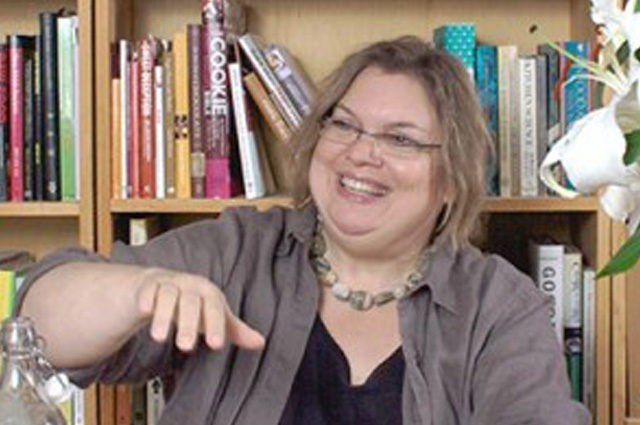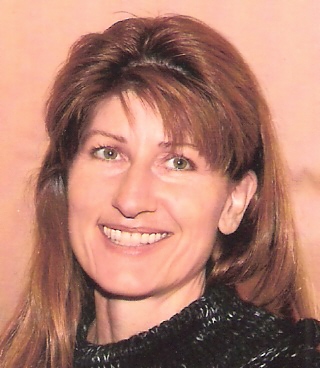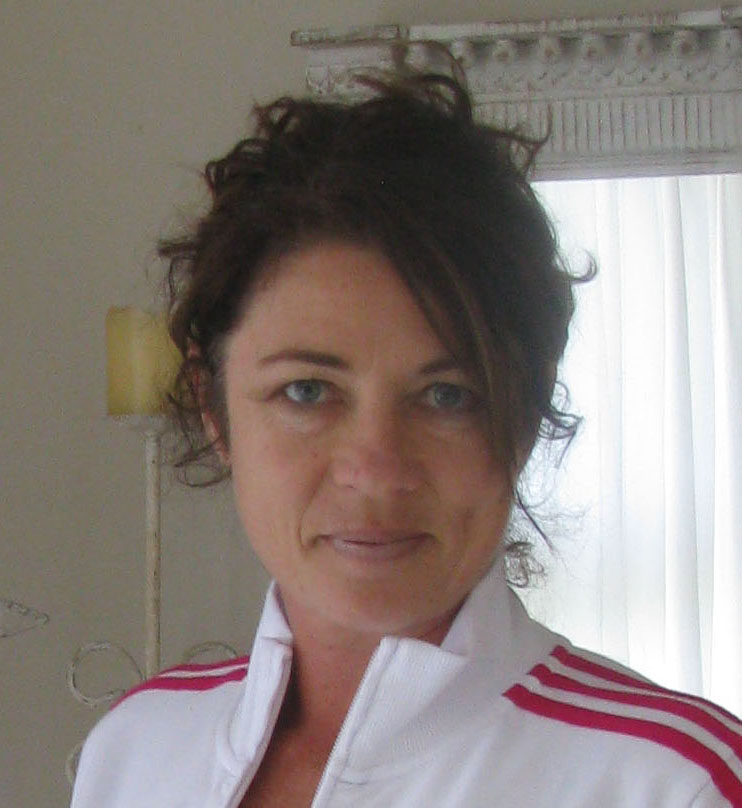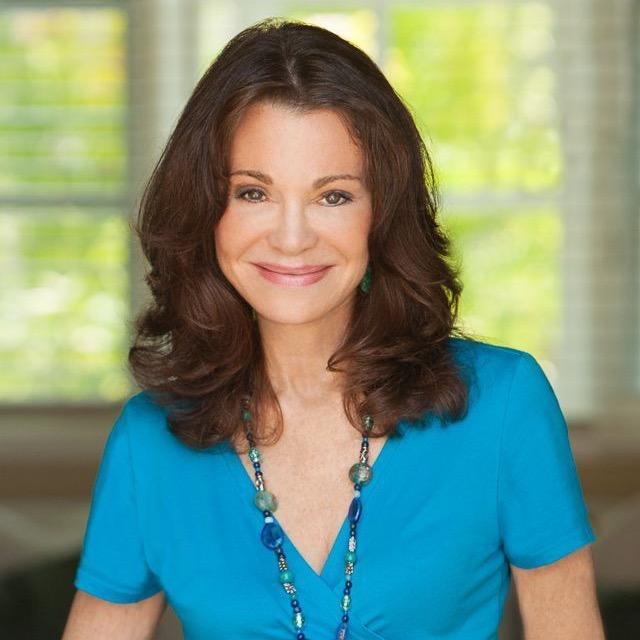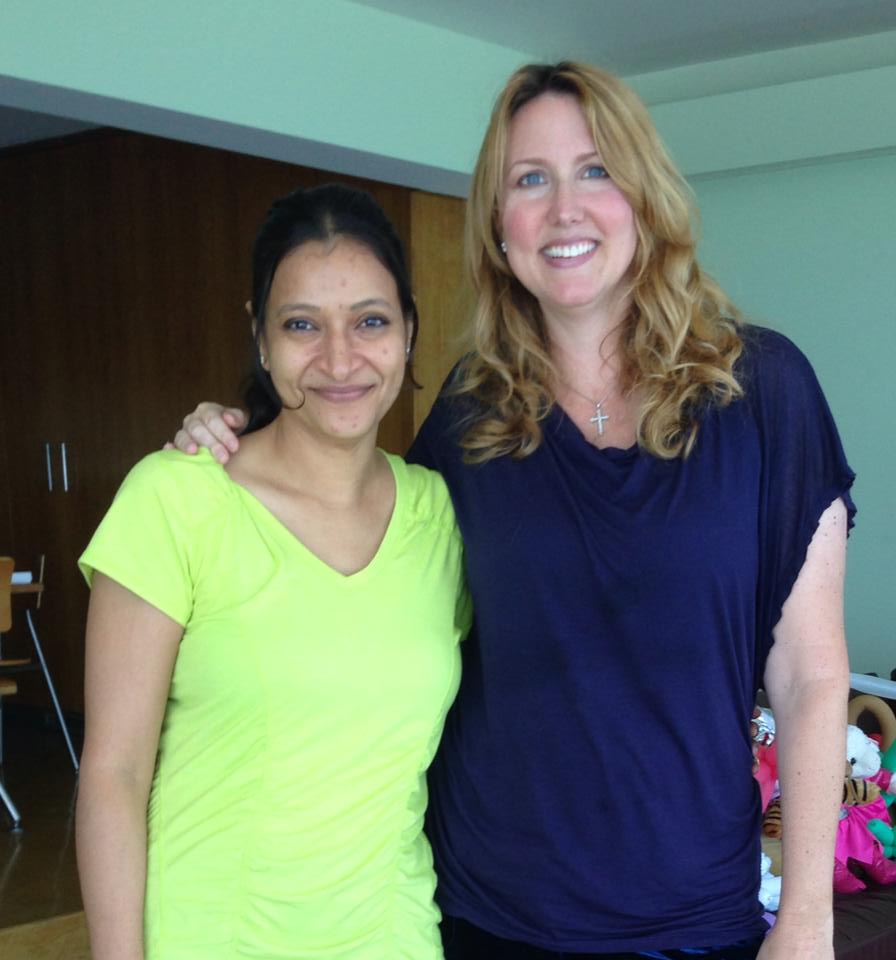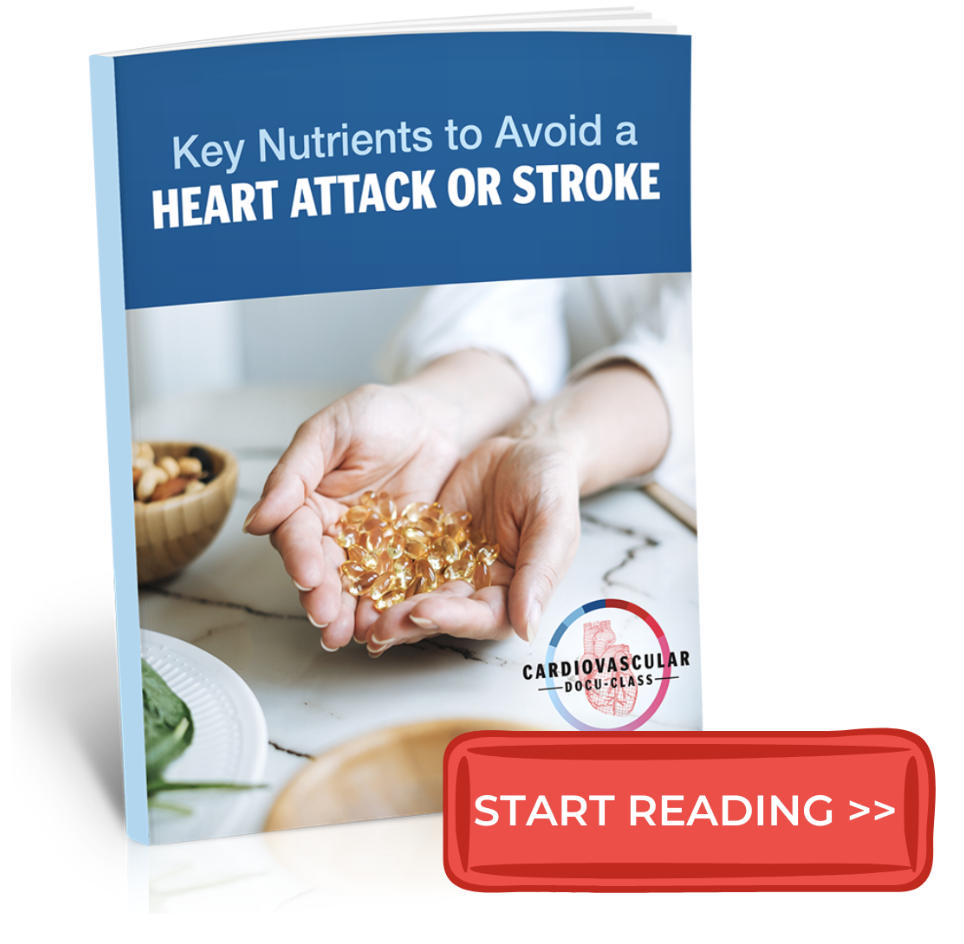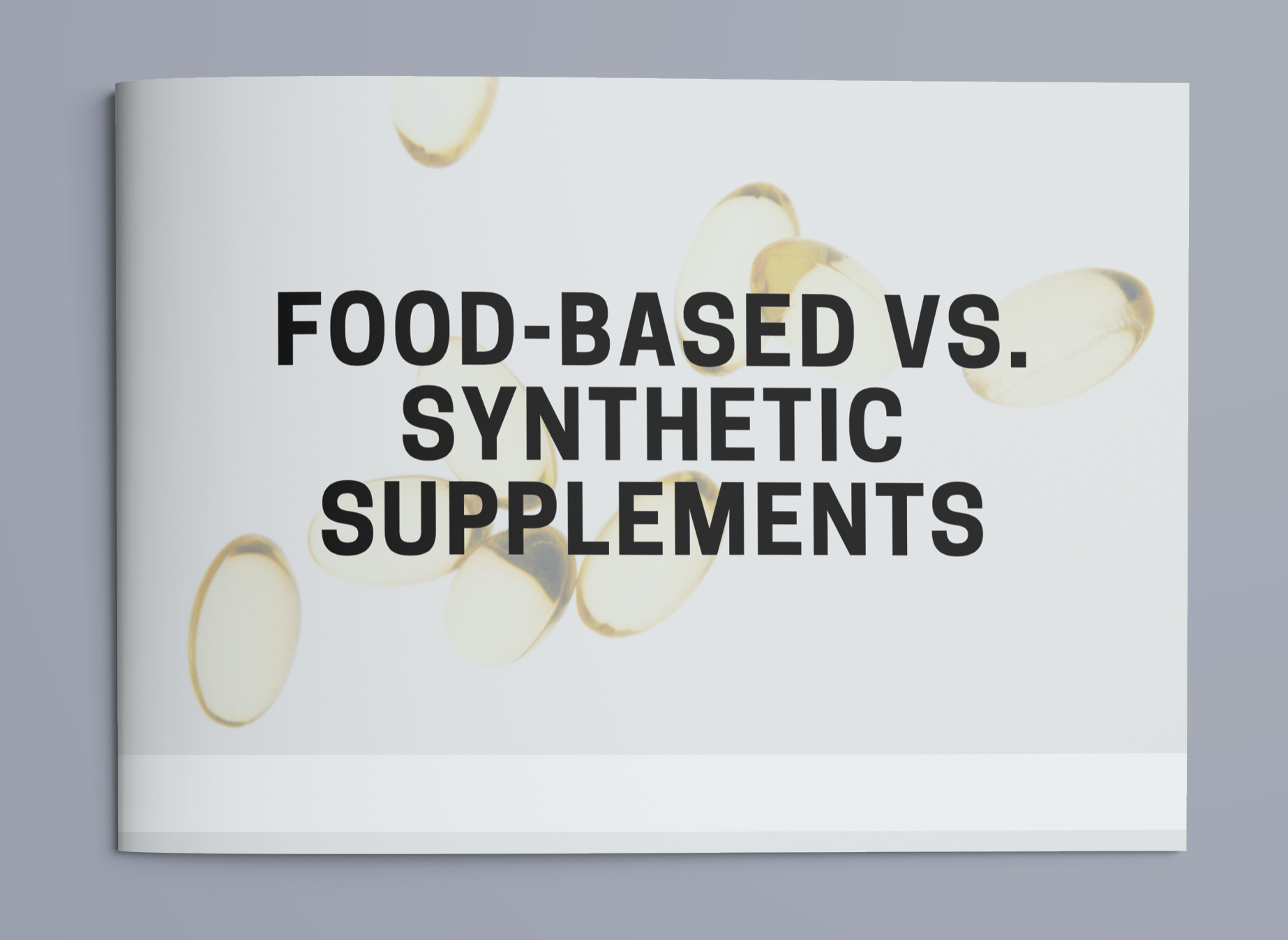Listen
Listen to this podcast or watch the video. CLICK HERE
Transcript
- 02:40 About Debra Lynn Dadd
- 10:53 Indoor Air Quality as the Number One Environmental Health Problem
- 12:45 Pollutants in the Home
- 19:52 HVAC Filters versus Air Filters
- 20:38 Types of Air Filters and Purifiers
- 40:43 Recommended Air Purifiers
- 43:56 The Most Pressing Health Issue in the World Today: Toxic Chemicals
- 47:14 Where to find Debra Lynn Dadd
Wendy Myers: Hello! Welcome to the Live to 110 podcast. My name is Wendy Myers and you can find me on myersdetox.com. I’m so glad you joined me today. I have a great guest on the podcast. We are going to be talking about air quality and air purifiers and the importance of having one in your home.
Debra Lynn Dadd is a very good friend of mine. We’re both on a mission to educate people about the 911 importance of toxins in your home, toxins in your body and how they are the true underlying cause of disease that so many doctors and health practitioners are just not talking about and not factoring in to their patients’ and clients’ health.
So, we’re going to talk about air purifiers on the show today and what kind you should get too.
Please keep in mind that this podcast is for informational purposes only. This program is not intended to diagnose or treat any disease or health condition and is not a substitute for professional medical advice. Please consult your health practitioner before doing anything that we suggest today on the show.
I am so thrilled! My new line of supplements Bio Rehab is finally available on Amazon. The button should be clicked. Hopefully, by the time this podcast airs, the delivery will be at Amazon and available for sale. Just search for Liver Rehab by Bio Rehab Supplements.
Bio Rehab is a product I’ve been formulating for months. I think liver health is one of the most important things people need to have because it’s what detoxes your body. Most people today have a very, very toxic overburdened liver. Thirty percent of US has a fatty liver. This is one of the reasons why toxins build up in our body because out livers are just overstressed and overworked. So, it’s very important to give daily support to your liver.
I created this formula with several herbs and amino acids that really helped the liver function optimally. So, just go check it out for yourself, Liver Rehab by Bio Rehab.
Our guest today, Debra Lynn Dadd wrote the very first published book on toxic chemicals in consumer products way back in 1984. Definitely, I don’t remember anyone talking about toxic chemicals in 1984. Her updated book has been continuously in print since.
She became interested in the subject after learning that exposure to toxic chemicals in her own home were causing a variety of health problems. She restored her health by identifying the toxic chemicals in her home and removing them.
After seeing the harm toxic chemicals can cause and that safe alternatives do exist, Debra made it her life’s work to educate consumers on how to make safer choices so everyone can be healthy and happy.
Today, Debra has the most extensive website in the world – but I’m gaining on her. No, I’m joking – about how to live toxic free and continues to expand her work into new areas. She has a directory of hundreds of websites where you can buy toxic free products, a food blog and information on how to remove toxic chemical from your body.
Debra is also the host of Toxic Free Talk Radio. I’ve been a guest on it a few times. You can even call her directly for a personal consultation. So, visit Debra’s website at ToxicFree123.com.
Debra, thank you so much for coming on the show!
Debra Lynn Dadd: Thank you! It’s nice to be here.
Wendy Myers: Yes, you’ve been on the show many, many times and you’re such a great guest and I love having you on because we’re just seeing eye-to-eye. We love talking about toxins and how they destroy your health. And you’ve written seven books on toxins and how to avoid them et cetera, et cetera.
So, why don’t you tell a little bit about how you got into this and about maybe a couple of your books?
Debra Lynn Dadd: Well, only one is still in print. It’s called Toxic Free. I’ve been continuously in print for 30 years.
Wendy Myers: Wow!
Debra Lynn Dadd: I actually wrote the very first book about toxic chemicals in consumer products back in 1984, it was published.
So, I became interested in this. Nobody knew anything about this at the time. But I was very young, only 24 and I was really sick. I had all these different symptoms and I didn’t know what they were. They didn’t add up to any illness that I recognize. It was things like insomnia, depression and getting headaches and fainting in the shower. And that doesn’t sound like an illness.
Wendy Myers: Yeah.
Debra Lynn Dadd: But I would also notice that these symptoms would happen at certain times. But I wasn’t making any correlation between anything and a lot of times, I would eat foods and they would give me certain symptoms.
So, I finally just got so disabled that I went on a test. And after five days, they were like, “Oh, look, look!” “Wow! What is this? I mean, how come I haven’t been feeling good?”
And then, my mother developed cancer and my father took her to a doctor who was giving intravenous Vitamin C treatments, which in 1978 was not very common. He went to the office with her and he found that this doctor was also doing something called Provocative Neutralization Testing for people to see if they were reacting to chemicals and other things in the environment. He looked at these people and said, “This is my daughter” because I would just start crying for no reason, just burst into tears.
Wendy Myers: I have clients that do that too. Some clients have that. There’s no outside stimulus. It’s just some sort of toxin. It’s really interesting.
Debra Lynn Dadd: Right! And one day, I actually cried all day long. There’s just no apparent reason for this. So, he goes to the doctor’s office and he sees these people being tested and he says, “That was what’s wrong with my daughter.” It turned out that they were testing people for chemical exposure.
So, that made sense to me although I said, “What chemical exposure?” because at that time in particular, nobody thought there were chemicals in their home. If it was on the shelf, it was safe. Nobody was talking about this. So, I went down and I got tested and they turned on all my symptoms.
But at that time what they were doing was giving people remedies that have toxic preservatives in them. So, I took them and I just got sicker and sicker.
And finally, one of the other patients said, “Are you still sleeping on sheets with formaldehyde on them?” Then I said, “What formaldehyde?” And it turns out that all permanent sheets, still today 30 years later, have formaldehyde out-gassing off the sheets from the permanent press finish. That’s the standard.
Wendy Myers: Yeah. It prevents wrinkles.
Debra Lynn Dadd: Yes, because it prevent the wrinkles. Yeah. So, people buy these sheets in order to not have to iron them, but they’re sleeping on a cot of formaldehyde every night.
Wendy Myers: God forbid you have wrinkle sheets!
Debra Lynn Dadd: Well, I sleep actually on cotton flannel sheets, which don’t wrinkle. That was my solution. But formaldehyde can give you itchy eyes, runny nose, cancer and insomnia.
Wendy Myers: Yeah.
Debra Lynn Dadd: I found that out because I started just going to medical libraries. I would go to the hospital medical libraries and I’d start looking at chemicals and illnesses and see if I could piece them together. And there was one day I found in a dermatology book that formaldehyde causes insomnia. I said, “I need to take those sheets off my bed.” I did and I slept. I slept.
So, that was really the thing that showed me there was something to this.
And then, I thought, “Okay. So, what else can I take out of my home?” I started connecting when I was having the symptoms that I would get headaches when I wore perfume and I would get tired when I would clean my house and things like that.
I just started keeping the journal and I said, “Wait a minute! These chemicals are making me sick.” I started eliminating everything.
At that particular time, there were so few non-toxic products that I was just cleaning my house with baking soda and wearing t-shirts and jeans and that was my life. I said, “There has to be something better than this. I can’t go through the rest of my life living like this.”
And it turned that there was. I started finding products and finding products. And now I have so many products, you can hardly even keep track of them.
Wendy Myers: Yeah. And there are a lot of not-so-great products. Some of the natural products really don’t clean the house that well but there are some great ones. There are some great ones.
Debra Lynn Dadd: There are. There are, yeah.
Wendy Myers: I use Charlie’s Soap to do my laundry.
Debra Lynn Dadd: I like Charlie’s Soap.
Wendy Myers: I think it’s the best detergent. It actually gets the smell out of your clothes – not that I have smelly clothes. But if you do like if your husband’s smelly or the underarm part, it actually works. It cleans it and it does a great job.
Debra Lynn Dadd: My favorite laundry is soap nuts. Have you ever tried soap nuts?
Wendy Myers: I have not, no.
Debra Lynn Dadd: They’re really wonderful. They are just an actual nut off of a tree. In California, as a child, I grew up being taught that there’s something Indian soap root that when you dig up this plant, the root makes soap.
It’s the same thing with these soap nuts. If you put it in the laundry, they actually make your clothes clean and very soft. It’s just a nut, there’s no processing involved at all.
Wendy Myers: Oh, wow! That’s really interesting. Well, I have to go on a nature hike and find some of those and do my laundry like the old days.
Debra Lynn Dadd: Yeah.
Wendy Myers: So, what is the number problem that you observe in a typical home?
Debra Lynn Dadd: The number one health problem by far is air quality. And it’s not just my observation. The United States Environmental Protection agency has established that as the number one environmental health problem.
And really most people spend 90% of their day indoors and people don’t usually think about this until just slightly before I was doing my work in the 70s. And it was because at the time, there was a big energy crisis. I don’t know if you remember that.
Wendy Myers: Yeah.
Debra Lynn Dadd: I remember it because I used to drive Firebird Formula 400 and then I couldn’t get gas for it because they reduced the octane of the gas. And so, I had to get an economy car. I had to sell my Firebird Formula 400.
Wendy Myers: Devastating!
Debra Lynn Dadd: It was devastating. You know how much that car would be worth if I still had that car today? It will be worth a lot of money.
So, what happened at that particular time was that people started being energy-conscious, so they started making tight houses. And instead of having your windows open, instead of having all these cracks in the house where you have ventilation going through the cracks, people were told to seal everything up.
And so, that’s when they started finding out, “Wait a minute! There’s all these toxic stuff in the house. Because we’re sealing it up, we’re creating psychosis.” It didn’t even exist until right out around that same time when I started doing my research too.
Wendy Myers: Yeah. So, what types of pollutants are, in your research, have you found in the home?
Debra Lynn Dadd: Well, there are all kinds of different chemicals, but they all kind of boil down to – and I’m going describe them in this way because it makes a difference in how you remove them. There are basically microorganisms. If you’re sick and you’re coughing and sneezing, then there are always microorganisms. Molds falls into that also, mold spores.
Then there are also particles. Dust is a particule or there are certain toxic substances like heavy metals and things that are particles.
And then, there are gasses. And most of the dangerous things that we find in indoor air are gasses.
You may have heard this term, out-gassing, which means that a material like plastic in particular or stereo speakers or your bed sheets are giving off vapors of these toxic chemicals. And then we breathe them and they get into our bodies very quickly.
We think of things that we put into our mouth as poison, that’s what the Poison Control Center is about. If you eat something that is toxic and then you have a toxic reaction, you call the Poison Control Center. But these vapors are around.
And if you’re not doing something to remove them either by actually removing the product or using an air filter, then you’re being exposed to them. If you don’t know what I’m talking about, you’re being exposed to it because if you’re not doing something, you’re being exposed.
I just can’t even tell you how many toxic chemicals are floating around in your home. And another thing that they do is a piggyback on top of dust particles. So, it makes it easier for you to breathe them in.
If you were to a drink a poison or eat a poison, there’s all these fats and protein in your stomach and so it starts absorbing it before it can go into your body. But when you breathe in a chemical, when you have put in on your skin like something toxic in a lotion or something, it goes straight into your blood stream – straight into your blood stream in a nanosecond.
For many years, I used to say to people, the point is you need to remove the toxic chemical at the source. I didn’t recommend air filters, but I’ve changed my mind about that.
One of the reasons I’ve changed mind is that getting an air filter is actually probably the single quickest thing that you can do to remove your toxic chemical exposure, but it takes time to identify where these chemicals are in your home. And certainly, you need to do that and remove them.
But you could just, right now, even in the middle of the show, you could go to my website and order an air filter and it would arrive and you could stop being exposed to these things.
For many years, I didn’t have an air filter because I have a very non-toxic home. But last week, my computer died and I had to get another computer. I was really happy when I took that out of the box. It outgasses a little quirky, but it burns off and then it’s okay. But for those few days, I was really happy that I had an air filter so that I could run it when I needed it.
Or if somebody walks into my house to repair a TV or something and they’ve got something scented on, just turn on the air filter and it’s fine. It really protects you. It’s there when you need it.
Wendy Myers: I think people really need to be cognizant of if they open one of their children’s toys or what have you and you smell this really horrible chemical smell, it’s toxic.
Debra Lynn Dadd: It’s toxic, it really is toxic.
Wendy Myers: I have some toys like my child will bring home from a friend that gave it to her or from school, some of the plastics, especially the real sticky one, like sticky soft plastic, they have toys like balls that are made out of this, it just smells so horrible, so toxic. I won’t let her play with those.
There are so many examples like carpets have VOCs, volatile organic compound…
Debra Lynn Dadd: Carpets are horrible.
Wendy Myers: They’re constantly are releasing. Mattresses has fire-retardants on them. There are so many…
Debra Lynn Dadd: Anything that is scented. It was Labor Day this weekend and so I decided to go shopping and see if I could find some special present for myself on sale. I found this beautiful scarf and it was on sale for $7.
And when you’re out shopping, you can’t always smell what it smells like because it’s in a store with a whole bunch of other things that smell. But I got it home and I took it out of the bag and it was so scented.
Now, I know how to be able to get the scent out and I’ll be able to do that and it will be fine. But it seems like once you start learning these things, everywhere you look, you see that there’s toxic chemicals out there in the world. It’s very different from your own home once you’ve fixed it up.
Wendy Myers: Yeah. And I think what people don’t realize is that even if things smell good, like perfumes, they’re made of petroleum chemicals.
Debra Lynn Dadd: Right, some very toxic petroleum chemicals.
Wendy Myers: They’re so bad for you.
Debra Lynn Dadd: They are, they are.
Wendy Myers: It’s not the toxic smell or chemical smell that’s the only guide. It’s one of them. Many women, they’re just spraying themselves everyday in perfume, bathing themselves (not to mention their shampoos and all other stuff).
Debra Lynn Dadd: It’s all over in all the personal care products. I mean, we’re just walking around being exposed to all of these things.
So, the best thing that you can do in terms of toxic chemicals is to not be exposed in the first place. Anything that you can do in our homes to remove those toxic chemicals so that we’re not exposed to it, then our bodies don’t have to fight against those, they don’t have to process them. We don’t have to detox our bodies so much. I mean, the whole point of doing detox is to get the stuff out of your body that you’ve been exposed to. And so, the more we can prevent them from being our bodies in the first place, the better off we are.
Wendy Myers: I used to have an HVAC filter that I ran in my home all the time. It’s about 10 years. I just decided, “Well, I should get an air filter. I’ve been reading some stuff about it.” I just got bored of running it and replacing the filter, so I got rid of it.
Wendy Myers: But don’t the filters on the HVAC system purify the air? Are those good filters?
Debra Lynn Dadd: they’re not really designed to purify the air. With an HVAC filter, it’s designed to keep those particles out of the filter system. So, it’s really only for things like this and little particles that would clog out the filter system. It’s not for chemicals at all.
Wendy Myers: Okay.
Debra Lynn Dadd: If you’re interested in removing chemicals, it’s actually better for you to have a free-standing system than try to expect your HVAC system to…
Wendy Myers: I think I got it for allergies because at that time I had allergies. I don’t have it anymore because I’ve healed my body and healed my adrenal fatigue, but I got it for my allergies originally. But chemicals are much more important.
So, what are some of the different air filters and purifiers that are available? What’s the difference between an air filter and an air purifier?
Debra Lynn Dadd: Well, an air filter is something with filter that will trap the chemicals and trap the dust. What you have in your HVAC is a filter because it’s trapping the dust.
An air purifier uses other kinds of technology. I’m actually pretty excited about new technologies that are now available just in 2015. I have on my website and I’ve been experimenting with two new filters that are very similar.
One of the problems with the old filter is if you were wanting to remove chemicals, say even a year ago or from the last 50 years, you would get a filter that has activated carbon in it. And the way that works is that the carbon, the air goes through the filter, the carbon attracts the chemicals and it holds it in a little pore like a sponge. And then, when all the pores are filled, then you have to take out the cartridge and replace it. If you don’t do that, then it will start putting those chemicals back in the air. And the same principle applies to water filters too.
But the new filters, the new purifiers, I should say, that are available today, actually destroy the molecule. It goes through a reaction with non-toxic materials that are inside the unit and then it just destroys it. So, it just keeps going and going. Eventually, the materials wear out and you have to replace it, but the chemical just isn’t there anymore. It’s not like taking in to the landfill a whole cartridge of toxic chemicals. It just turns it to their elemental, basic building blocks. I think it’s pretty cool.
Wendy Myers: That is really amazing. That’s really interesting. I’ll pick up myself an air filter or an air purifier.
That’s one thing I have not done because for me, I worked very, very hard to clean up my personal care products. I avoid perfume, I don’t use toxic chemicals. But in reality, they’re in your furniture. They can be in your mattress unless you purchase the very expensive mattress. There are so many points of entry that I think it’s very, very important.
Debra Lynn Dadd: I think it is, too. For so long, I was just taking this real purist viewpoint and saying, “No, you have to get those toxic chemicals out of your house!” But the reality is it takes time, it takes education, it takes money to replace all these things. And for a few hundred dollars, you can get an air filter that really does the job and reduce your exposure right away.
Wendy Myers: The thing, also, a lot of us don’t realize is when they just run their dishwasher, say, using the typical dishwashing detergent, you get this cloud of chlorine gas.
Debra Lynn Dadd: You do, you do.
Wendy Myers: It smells kind of like the chlorine pool. You get this cloud of chlorine gas that you’re basically breathing in.
Debra Lynn Dadd: That’s right. So, this is where an air filter, if you have the right one, will remove those gasses and you won’t smell them. I mean, it’s nicer to not smell them, but it also doesn’t get into your body and make your body sick.
Wendy Myers: Yeah. And even when you’re cooking, you got that tap water and you’re boiling tap water to cook with, whatever you’re making (hopefully, your gluten-free spaghetti, maybe with quinoa or something). Again, the chlorine when it’s heated up will turn into a gas in the water…
Debra Lynn Dadd: Also, if you’re cooking with gas, it gives off combustion byproducts. And some of those are pretty toxic with things like benzene and formaldehyde and things. If you don’t have your overhead hood on and pulling it out of the house, those combustion byproducts will spread all through your house into every room.
And so to cook up with gas is just creating a toxic environment. But an air filter will protect you from all that.
Wendy Myers: Yeah. A lot of people don’t realize that natural gas can contribute to pain syndrome in some people that are cooking all the time or they have their water heater in their house and they’ve got that little flame going all the time. It’s maybe just in the closet, but that flame is going all the time to try to heat up their water for their water tank.
Debra Lynn Dadd: And it’s producing combustion byproducts all the time.
Wendy Myers: Yeah. We could keep going. There’s just so, so many examples that even us experts, there are so many different points of entry of toxins into your home. Even just opening your door, if you leave your door open, you live in Los Angeles like I do, tons of smog of toxic thallium.
Thallium is added to gasoline to prevent knocking in car engines by our lovely petroleum companies. This is a toxin I’m finding in all of my clients almost when I do a hair mineral analysis because they’re breathing in that thallium from the car exhaust, from the smog. When you leave your door open when you live in the city, that stuff is getting into your homes and it’s 10 times more toxic than mercury.
Debra Lynn Dadd: It is. And you can make your home like an oasis where your body gets to relax and not be accosted by toxic chemicals because when we go out of our homes – I have very, very few toxins in my home. I wish I could say a 100%, but I use a computer, I have a printer and I have a plastic telephone.
But for the most part, everything that I use is just non-toxic as humanly possible. So, when I’m at home, my body has the opportunity to detox. But when I go back out of into the world, it’s just full of toxic chemicals again…
Wendy Myers: You’re like, “Ahh!”
Debra Lynn Dadd: I know, it is. But what I’ve done (and recently, I’ve been thinking about this more and more), it’s not so much about 100% eliminating toxic exposures because that’s impossible. People, lots of times, they get the idea, they’d say, “Oh, I don’t want to be around those toxic chemicals. They make me sick. I want to avoid everything.”
But it’s more like chemical management where it’s a balance between being out in the world in that toxic exposure and then coming home and being in a non-toxic home with your air filter or that you’ve removed toxic exposures from, that you’re doing something to detox. All those things balance out the exposures that we’re having.
So, you want to eliminate your exposures as much as possible. But because we can’t do that, we have to do the other side as well.
Wendy Myers: It’s impossible. Toxins are in our air, food and water. They’re impossible. So, you just have to get the right water filter, the right air filter and just reduce exposure where you can. I always advocate doing infrared saunas to sweat out whatever you are exposed to because it’s impossible.
Debra Lynn Dadd: It is! You cannot avoid everything. You can’t.
Wendy Myers: You can’t! You can’t live your life in a bubble. I used to get really worried about every little thing. I take my shoes off before I go into the house, “Oh, my God! There’s lead into the soil.” I would just go to such great lengths to do all kinds of things.
At some point, you have to draw a line. You have the detox protocols you do. I think air filters are really a great thing to do. All the listeners know all the things I suggest to detox and to reduce exposure. But you just have to do what you can.
Debra Lynn Dadd: Yeah, you just do what you can and think positive thoughts and go about your life. There really isn’t a place on Earth where you’re not going to be exposed to these things. There’s a book called Silent Spring. Have you read Silent Spring?
Wendy Myers: I have.
Debra Lynn Dadd: Even I think it was published in 1964, I didn’t read it until a few summers ago when I was working on my book, Toxic Free. I was just shocked to find out that they already knew in 1944 that toxic chemicals were spread all across the globe, that there was not one place that didn’t have any pesticides in it in 1944. That means we’re all born already with toxic in our bodies. It’s just amazing to me that that’s the case and that so many people don’t know it.
The thing that I have the most attention on today, it was actually an air pollutant. The other day, I was in a public place and a woman pulled out a Sharpie pen. Sorry, I used a brand name.
Wendy Myers: I don’t care. They want to sue me, they can go right ahead.
Debra Lynn Dadd: It’s not just Sharpie though, it’s any of those pens, it just gives off this big cloud of toxic solvents.
Wendy Myers: Oh, so horrible! That’s so horrible!
Debra Lynn Dadd: It happened to be somebody I knew. I said, “What are you doing with that pen?” and I grabbed it out of her hand and I said, “This is a toxic item. I’m confiscating it!” and I put it in my purse.
She’s an intelligent person, but she really didn’t know. She really didn’t know. And then, I went into an office supply place because I needed some – there are non-toxic pens. But I forgot my brand when I got there. I thought, “Is is this one or this one?”
So, I bought a couple including the one I thought was the one that wasn’t toxic and then I bought another one. And this one said, “AP Non-Toxic” on the label. I got it home and I opened it. I closed it right away because right away, those vapors came out.
I’ve been doing this work 30 years, you’re doing this work, many other people are doing this work. And still, every day, I see people that just aren’t aware that this is what’s going on. We really are being poisoned by most consumer products and they say things like, “non-toxic” on them.
I’m not saying that every non-toxic product is poisonous, but there’s not a good labeling system and you really need to know as a consumer what to buy and what not to buy. And it’s really up to us because we are not being protected.
Wendy Myers: Yeah, you do. You have to take responsibility for your health. No one is going to do it for you. Your doctors are not going to talk to you about chemical exposure. It’s a very, very small percentage, like 0.001% of healthcare practitioners like physicians that are even considering this as an underlying cause of their patients’ health issues.
So, your doctors most likely are not going to be telling you about this. Even a lot of health professionals that have health websites and talk about diet and talk about all kinds of…
Debra Lynn Dadd: They still don’t talk about this.
Wendy Myers: They don’t know about it.
Debra Lynn Dadd: They don’t know about it.
Wendy Myers: They don’t know about chemicals. They know about the right diet to eat. But a lot of them, I speak with them, they don’t know anything about heavy metals and chemicals. It’s shocking.
So, that’s why I really like having people like you on the podcast because this message is so important…
Debra Lynn Dadd: It is.
Wendy Myers: …to tell people because they are causing disease. Eighty thousand chemicals in the environment…
Debra Lynn Dadd: Oh, it’s more than that! It’s more than that.
Wendy Myers: It’s growing every year by thousands. None of them are tested for human safety, no regulations whatsoever and the corporations just have a carte-blanche to put chemicals in the environment. They dump the chemicals like, “Oh, I’ll pay the fine. A few million dollars, big whoop!” Not to mention, we have 500 chemicals on average in our body stated by the CDC. That’s on average. Forget the potentiating effects of one chemical exacerbating the toxic effects of another or…
Debra Lynn Dadd: That’s happening. That’s absolutely happening.
Wendy Myers: Yeah, and the synergistic effects of all these chemicals combining to make even more toxic chemicals.
Debra Lynn Dadd: And we don’t even know. They can’t even begin to calculate what that is.
Wendy Myers: And they’ll never be studies…
Debra Lynn Dadd: No. There’s no study that can be done to look at the synergistic effects because each one of us is having a different combination of chemicals. This is just so nuts! I can’t even begin to say how ridiculous – ridiculous isn’t the right word. It’s just when you have the information, you look at this and you go, “What is going on in the world?” But there are things that we can do and we just need to do them.
I was talking to a friend of mine today who’s a doctor and he was talking about the difference between comfort and cure and that most of what people do is to be comfortable. So, you go to a doctor, they give you a drug so that you can be comfortable. But it’s not curing the underlying cause.
And what you and I are talking about is curing. I shouldn’t use that word. But what we’re doing is addressing the underlying cause of disease.
Wendy Myers: And reversing, you can reverse disease. You can reverse it.
Debra Lynn Dadd: And reversing it, right. Because what happens, I think most people don’t realize that when these chemicals go in your body, they stay there and they build up and they build up. And that’s when you get sick. Even if you think, “I’m not sick. What are they talking about?” You’re getting sick. I guarantee it, you are getting sick. And one day, you’ll get sick.
A person that I know just recently was diagnosed with stage 4 cancer. He had no symptoms, no symptoms until he was diagnosed with metastasized stage 4 cancer.
Wendy Myers: A lot of us just have fatigue, they’re just tired.
Debra Lynn Dadd: I’ve known him for several years and he kept getting sick. I thought, “Why is this person getting sick all the time?” because it was much more common than people who usually gets sick. But he’d have a little cold or something like that. He had no symptoms of cancer. Nothing made him think of cancer.
Wendy Myers: Yeah. Andsometimes, these things are so subtle. My father who had esophageal cancer, he was just tired for a few years. It got worse and worse. And then, he started having trouble swallowing and he was falling asleep at work and he got fired from that. He just went home and decided to retire because he was too exhausted to work. But then that prompted the doctor visit for the diagnosis.
But a lot of people, if you are fatigued, that is the beginning of the disease process where you develop adrenal fatigue, which is caused largely, in part, by heavy metal and chemical toxicity. The adrenals rev up your metabolism, they’re trying to push out these metals and chemicals, trying to increase your metabolism to get them out. And then, that promotes adrenal fatigue. That causes the domino effect. These chemicals build up and your liver’s backed up and it can’t handle them. And then, you just start retaining more and more chemicals.
Debra Lynn Dadd: Yes, I totally agree with you.
Wendy Myers: I have so many so many clients that come to me that they are eating a perfect – I mean, perfect diet, flawless. They’re trying to sleep every night, they are going to bed by 10 p.m. and they’re exercising. They hit 30, 40 and they’re like, “I feel terrible.” They go, “Why don’t I feel good? I’m doing everything. I’m taking supplements.”
They are exhausted. They start having trouble sleeping and they are brain fog, et cetera. They’re doing everything right, but it’s because they are not thinking about heavy metals and chemicals.
Debra Lynn Dadd: Right. I see that all the time. And I should mention, I have a radio show called Toxic Free Talk Radio (which Wendy has been on). But I have a lot of guests who say exactly this, “I was doing all the right things and I got sick anyway.” And then, that prompted them to do whatever it is that they’re doing to help people not be exposed to these chemicals. I just hear this over and over.
The thing that I’ve learned about chemicals is that you could be doing everything else right and if you’re still being exposed to chemicals and not detoxing, you’re going to get sick because of toxic chemicals are the number one thing that make people sick in our world today.
We’re so overwhelmed with them to do something like using air filter or water filter or remove the actual products that are emitting these toxic chemicals. It’s a simple thing to save your life. Illness is expensive. Spending $300 on air filter is not by comparison.
Wendy Myers: It is! You’re going to pay now or you’re going to pay later. You’re going to pay for good food or detox protocols or air filters or whatever else that you’re doing now or you’re going to pay for nursing homes and medications later.
Trust me, Social Security ain’t going to cover it. I know because my father, when he got sick eventually because he was taking statins, he got so weak he couldn’t even go to the bathroom by himself. So, we had to put him in a nursing home. Social Security didn’t cover it. I had to pay like a thousand dollars a month for this nursing home in part. And then, I had to pay $900 a month for his medications, which looking back, I probably shouldn’t have done. He had to take a lot of insulin, et cetera. And that wasn’t covered by Plan B. It was Social Security drug coverage at that time. So, I was having to help them at that.
But a lot of senior citizens don’t have that and they have to choose. They have to not take certain medications because they could not afford them.
And we’re certainly not advocating taking medications at all. We’re advocating preventing disease in the first place, so you don’t have to have medication.
Debra Lynn Dadd: It’s so much nicer to actually just being able to live your life instead of being sick in the end. I’m not saying that if you do all things, the detox and not being exposed to the chemicals, that everything is going to be perfect and lovely, but you have so much of a better chance.
Wendy Myers: And you have a better quality of life. There are genetic components involved in disease, but our diet and lifestyle and toxic exposures can express those genes. So, you have a much better chance if you detox your body and detox your environment.
Debra Lynn Dadd: That’s a much better chance.
Wendy Myers: So, we’ve been talking about air filters and everything. What types of air filter do you like? Or air purifiers, pardon me.
Debra Lynn Dadd: There are two that I like that I have on my website. These are ones that you need to order online. They’re not things you’re going to find in a store.
One is called the O2. It actually has a special way to collect the air and run it through the system, which is unique to that particular air purifier. It uses biological microorganisms to eat up and destroy the toxic chemical and microorganism and germs and all these things.
Wendy Myers: Wow!
Debra Lynn Dadd: It’s like having a house plant because you have to water it every few days, so that the microorganisms have something to work with. But it does a great job. Oh, my God! It does a great job of removing things from the air.
And then, there’s another one that’s made by a company called Envirocleanse. That has a similar type of ‘destroy the toxic chemical’ technology, but this uses mineral oxides.
So, they interact with the different chemicals and just destroy them. This is more like a regular metal box kind of air filter that has adjustable speeds. This is like a heavy duty thing. It’s not that the other one won’t remove a good deal of them, but if you suddenly have a tire truck coming in your front yard, you can crank it up and it will take out the chemicals really fast.
Wendy Myers: I love those tire trucks. In traffic, you’re like, “Argghhhh…” like you’re going to die from toxic exposure.
Debra Lynn Dadd: Yeah. So, you can go to my website. We’ll put the URL on your website when people are clicking to listen to this show and you can go right to my page about air filters and take a look.
Wendy Myers: Okay, great! And is there a giveaway that you’re offering? You kind of mentioned that before the show.
Debra Lynn Dadd: I have a give-away of an air filter comparison. So, it gives some background information more than what we talked out today about choosing air filters. And it also compares these two particular air filters that are think are the best ones, the best choices now. So, you can go to the URL that you’ll have and take a look at that.
Wendy Myers: Well, dang! I might have to get me one! I might have to get an air filter. I think that’s the one last thing that I don’t have.
Debra Lynn Dadd: You’ve got to get one, Wendy!
Wendy Myers: Yes. I was actually like, “Hmmm… I want to get the cells on my house. I want to get the solar powered house. I want to do that on my home.” I’m like, “That’s the last thing that I need to do.” Now, I’m like, “No! There’s one more thing. I need to get an air filter.”
Debra Lynn Dadd: Yeah. I think you should. Even if you don’t have them on all the time, there are times when you really need one and they’ll really protect you.
Wendy Myers: When you have a guest come over that’s in a cloud of perfume or what-not.
Debra Lynn Dadd: Yes.
Wendy Myers: So, I have a question that I’d like for all of my guest. What do you think was the most pressing health issue on the world today?
Debra Lynn Dadd: Besides toxic chemicals?
Wendy Myers: Yeah, or that could be your answer.
Debra Lynn Dadd: I think that is the answer. I feel very strongly about it because I do see it as the most important thing. It is very, very clear to me that anyone who’s sick, anyone who wants to stay well, if you don’t take care of this, it’s going to make you sick. You’re not going to able to recover from whatever your illness is. You’re going to get sick and you’re not going to be able to recover because toxic chemicals are there 24/7, getting in our bodies, being stored in our bodies and there are things we can do about it.
If we don’t, then…
Wendy Myers: The prognosis isn’t good.
Debra Lynn Dadd: The prognosis isn’t good.
Wendy Myers: Just look at the statistics, our disease statistics. One in two men get cancer and one in three women. Autoimmune illnesses are the fastest growing subset of diseases. Ten percent of the population has an autoimmune disease or more, one or more.
Debra Lynn Dadd: And people are getting illnesses now at age 30 and 40 that they didn’t get until they’re 60 or 70. Children are sicker than ever. I mean, the data is there. All you need to do is look at it and just see. I would like more people to look at it and just really get the information and say, “Something needs to change in the world here because this is not a safe place to live.”
We can do things for ourselves and there are more and more non-toxic products and more and more information and more and more people talking about it. But at the same time, it’s toxic out there and there’s a long way to go.
Wendy Myers: Yeah. And if you have a disease and no doctor can figure out what it is, odds are, lightbulbs will go off, it’s probably being caused by a heavy metal or chemical exposure or a combination of the above.
Debra Lynn Dadd: Yes.
Wendy Myers: You have to detox your body if you have any hopes of reversing it because there’s so many illnesses today.
I have some clients come to me and no can figure it out. There’s no name for the disease. Or they’re like, “Oh, there’s no treatment. There’s no drug,” et cetera, et cetera. The only solution people have, the only choice they have at that time is to detox their body. That’s the only option.
Debra Lynn Dadd: Well, it’s the right thing to do. Everybody on the planet should be detoxing every single day. People think of their detoxes, they get advertisement, “Go on the sun” and they detox or whatever. No, you need a lot more than that.
You need a lot more than that. Your body has a function to detox 24 hours a day. It especially is detoxing while you’re sleeping. We need to do things that support that and stop overstressing out detox system because that’s what’s going to save us and that’s what’s going to make us healthy. It’s just not widely enough known…
…which is why Wendy and I talk about it all the time.
Wendy Myers: Hallelujah! I agree with you. Yeah, that is the answer. It really is.
Debra Lynn Dadd: It is. It is.
Wendy Myers: So, why don’t you tell the listeners where they can find you and learn more about you. I really love your website! It’s really nice.
Debra Lynn Dadd: Thank you! I love my website too!
Wendy Myers: It’s our little babies. I love my site too! It’s your baby that you take care of everyday.
Debra Lynn Dadd: I do take care of it every day. You know what? There are so many ways to get into it. But you can go to ToxicFreeTalkRadio.com. That’s the easy one to remember and spell, ToxicFreeTalkRadio.com. That’ll take you to my radio show which is live three days a week (Tuesday, Wednesday and Thursday).
But I also have more than 200 archived shows. I’ve just been interviewing everybody that is doing something to make the world less toxic, ranging from people like Wendy to manufacturers of product to people who are working in organizations.
My schedule is all filled up for the month of September already. It’s September 6th. There are just so many things to talk about. You can listen to all the archived shows. I’ve got transcripts. There’s another part called Debra’s List where I have hundreds of websites that are selling non-toxic products.
I have a food blog, Toxic Free Kitchen where I have my little recipes that are just wonderful. Last week, it was chocolate bars, how to make your own chocolate bars with any flavor and any sweetener you want and they turn out great.
And there’s a Q&A where you can ask questions. I do consultations. You can call me up on the phone and I’ll talk to you.
Just my whole purpose in life is to get people to see that they can do things to not be toxic and that we can change our lives, we can change our schools, we can change our preferences, we can change the world. We have all the information we need. We just need to use it.
Wendy Myers: And tell us about your book too.
Debra Lynn Dadd: My book, the one that’s currently in print is called Toxic Free. It’s my favorite book of all of them because I wrote it at a time when I was just starting to understand detox.
Before, I would say, “Just eliminate the toxic chemicals and your body will heal itself.” And then, I had my detox enlightenment experience where I did something to detox and I felt so much better. In five days, I went, “Oh, my God! I’ve never felt like this!” I really never felt that good in my entire life. So, I’m doing a very simple detox thing.
This is the other part of it. In our world today, what you need to do is eliminate your chemicals, you need to detox your body and you need to get massive amounts of nutrition. If you do those two things, you’ll be healthy.
Wendy Myers: Yeah, I know. When I first started my website, I was really interested in weight loss at the time, diet, nutrition and weight loss. I was trying to lose weight at that time. I thought, “Why isn’t this happening? Why am I having such a time losing weight?”
I did a lot of research. That’s why there’s so much information on weight loss on myersdetox.com in case you’re wondering. But I got into obesogens, the chemicals that make you fat. There’s about 15 to 20 obesogens chemicals diet that will prevent the release of fat, that will turn stem cells into more fat cells and that will cause the fat cells you have to grow even larger, exponentially larger than they would normally grow. I thought, “Wow! That is amazing!”
And then, I learned about infrared saunas, that those are going to help to get rid of these chemicals, these xenoestrogens and obesogens, et cetera that are promoting fat. And then, I got my infrared sauna and I started detoxing. And lo, and behold, I finally started to lose weight.
So, that’s when ding-ding-ding the bell went off. I just veered my path to toxins because I thought, “This is the 911 for the planet.”
Debra Lynn Dadd: It is. That’s a good way to put it. It is a 911 for the planet. Everybody needs to wake up and do this because people are taking drugs or they’re taking remedies or they’re taking vitamins and they’re just trying to feel good not recognizing what’s making them sick.
Wendy Myers: Well, Debra, thank you so much for coming on the show! I really appreciate it.
Debra Lynn Dadd: You’re welcome. Thanks for having me!
Wendy Myers: It’s always a pleasure to talk with my detox sister!
Debra Lynn Dadd: Thank you. Well, we’ll make the world a better place, Wendy, you and I.
Wendy Myers: Absolutely! Well, again, thanks for coming on the show.
Debra Lynn Dadd: You’re welcome!
Wendy Myers: And listeners, if you want to learn more about detoxification, what works, what doesn’t, et cetera, et cetera and my version of Paleo, the Modern Paleo Diet that gets the toxins out of your diet, you can go to myersdetox.com.
I’m really excited! I’m working on MineralPower.com. That’s going to be up. It’s going to be a separate website out very, very soon in the next few months. That’s my own healing and detox program. But you can go to MineralPower.com right now and learn more about it, its little section on myersdetox.com. You can learn more about how to detox, et cetera, et cetera, all the things that I talk about on the podcast.
So, thank you so much for listening to the Live to 110 podcast.


